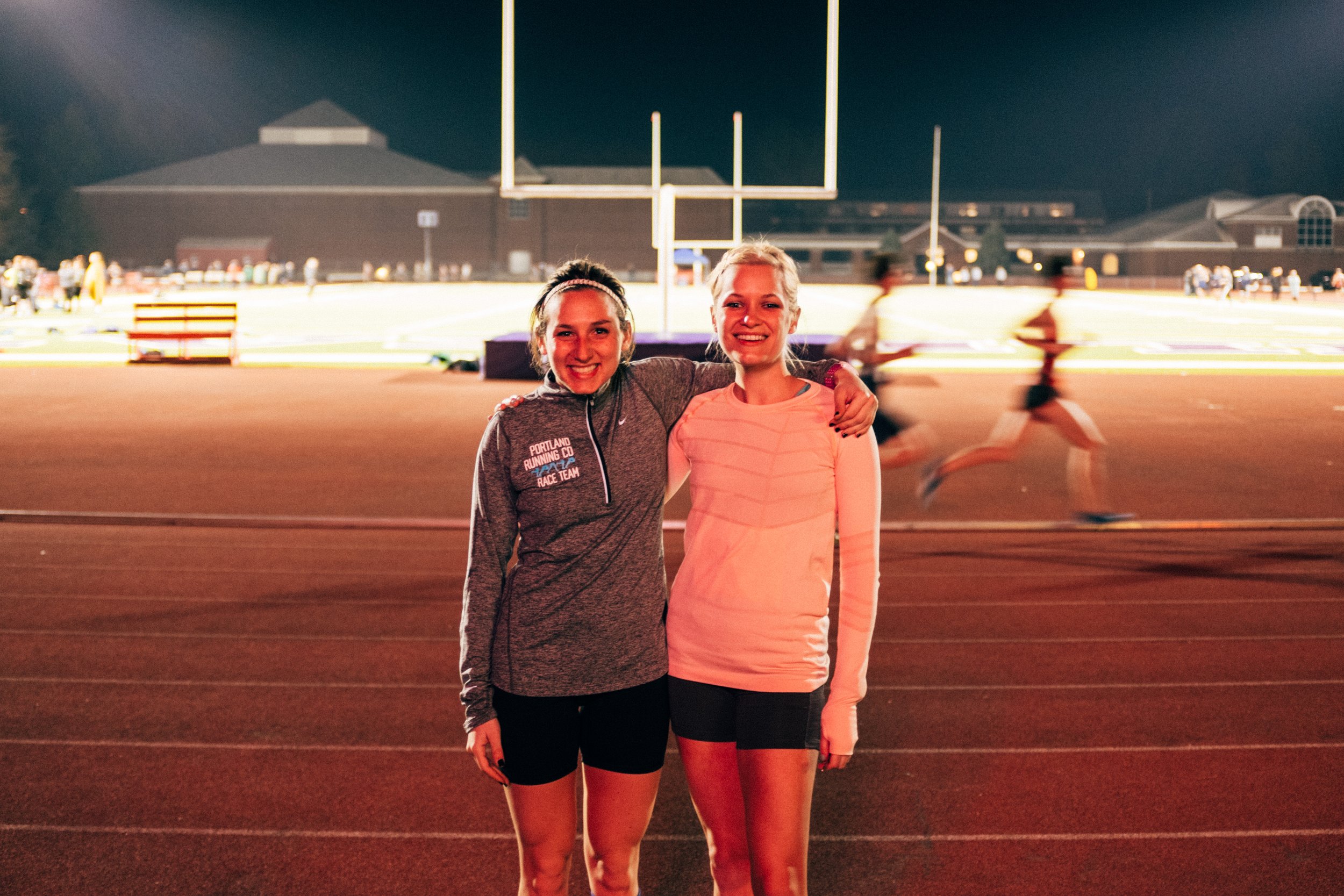Great Expectations
2014 was a breakthrough year for my running. I spent the first portion of the year regaining my fitness after a setback from injury, then later in the year I knocked four minutes off my half marathon best and fourteen minutes off my marathon best. My train of thought was, if I can run those kinds of PRs after a setback, imagine the possibilities after uninterrupted training! So I charged into 2015 with very, very high standards set on myself.So far, everything this year has gone swimmingly as I've prepared for the Eugene Half Marathon on May 10th. I've had solid workouts, long runs, and mileage. I ran a 10K personal best by 42 seconds at the Linfield College Icebreaker Meet on March 6th, then a week later lowered my 15K best at the Portland Shamrock Run by 9 seconds, drenched in rain. Yet, after every tempo run, speed workout, and race, I've found myself thinking, "Wow, that was really hard," and was disappointed that it didn't come easier or that I wasn't faster. Maybe it's because I'm an overachiever, or because I'm greedy, or maybe the two go hand in hand. With every milestone I reach, I am always wanting more. I pride myself by having ambitious goals, but comparing those goals with my current fitness leaves me feeling dissatisfied with the smaller successes.

With that on my mind, I've found myself looking to the wisdom of athletes I look up to. I recently read "Run to Overcome" by 2014 Boston Marathon champ Meb Keflezighi. I wish I could find the direct quote (I tried), but he said something along the lines of practicing patience and looking to improve by bits at a time, rather than leaps and bounds. With that mindset, you can set yourself up for success rather than constant (perceived) failure, not to mention putting yourself at a much lower risk of injury by not over-training. It is very hard for me to practice this kind of patience. With running, my career, life in general, I'm constantly feeling this sense of urgency, like if I don't accomplish all I want to by some arbitrary timeline, I will never reach my goals and all will be lost.In a recent piece on Ryan Hall in the New Yorker, he was quoted saying, “Running can be such a beautiful sport...An amazing experience for everyone. But I’ve also been on the other side of that, where I’ve lived for the victories and the performances and I just—I know how shallow and fleeting and chasing-the-wind that is. So it breaks my heart when I see other people doing that same thing I’ve done, and knowing what they’re in store for...It’s like, ‘Dude, no matter what you accomplish, it’s not gonna fill you up. It’s not what you’re looking for.’”When asked why he keeps racing if victory has had a diminished meaning for him, Hall's response was, “To never compare myself to myself or anyone else. I think comparison is bad. It’s bad in sports, it’s bad in life, it’s bad in writing, it’s just bad. But it is called a competition, so how do you do a competition the right way? For me, that’s where it comes back to excellence. I try and get everything out of my body that God’s put in me, the best I can. You hear it a million times—‘Just do your best’—but, really, that’s all you can do.”I took away so much from what Hall said in that article. Driven people, no matter what career and no matter where they are on the spectrum within it, are always looking to reach that next level. If that's their only motivation, they will never be satisfied. I don't think that should diminish anyone's ambition, but I do think it's important to dig a little deeper and really understand the motivation behind it.Here is my motivation. I want to be a living example that a slacker high school kid with little talent can go on to work really, really hard and accomplish amazing and impossible things. I want to bridge the gap between art and athleticism. I want to show that people don't have to pigeonhole themselves based on their interests or occupation. We are limitless! We can do our best.

